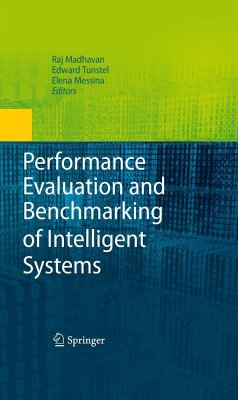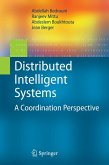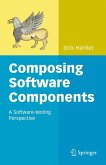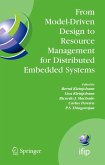This contributed volume is dedicated to the subject of performance evaluation and benchmarking of intelligent systems by drawing from the experiences and insights of experts gained both through theoretical development and practical implementation of intelligent systems in a variety of application domains.
The chapters cover a range of applications, such as assistive robotics, planetary surveying, urban search and rescue, and line tracking for automotive assembly. Subsystems include human-robot interaction, multi-robot coordination, communications, perception, and mapping, Chapters also cover simulation support and open source software for cognitive platforms, providing examples of enabling underlying technologies that can help intelligent systems to propagate and increase in capabilities.
Performance Evaluation and Benchmarking of Intelligent Systems serves as a professional reference for researchers and practitioners in a variety of fields.
To design and develop capable, dependable, and affordable intelligent systems, their performance must be measurable. Scienti?c methodologies for standardization and benchmarking are crucial for quantitatively evaluating the performance of eme- ing robotic and intelligent systems' technologies. There is currently no accepted standard for quantitatively measuring the performance of these systems against user-de?ned requirements; and furthermore, there is no consensus on what obj- tive evaluation procedures need to be followed to understand the performance of these systems. The lack of reproducible and repeatable test methods has precluded researchers working towards a common goal from exchanging and communic- ing results, inter-comparing system performance, and leveraging previous work that could otherwise avoid duplication and expedite technology transfer. Currently, this lack of cohesion in the community hinders progress in many domains, such as m- ufacturing, service, healthcare, and security. By providing the research community with access to standardized tools, reference data sets, and open source libraries of solutions, researchers and consumers will be able to evaluate the cost and be- ?ts associated with intelligent systems and associated technologies. In this vein, the edited book volume addresses performance evaluation and metrics for intel- gent systems, in general, while emphasizing the need and solutions for standardized methods. To the knowledge of the editors, there is not a single book on the market that is solely dedicated to the subject of performance evaluation and benchmarking of intelligent systems.
The chapters cover a range of applications, such as assistive robotics, planetary surveying, urban search and rescue, and line tracking for automotive assembly. Subsystems include human-robot interaction, multi-robot coordination, communications, perception, and mapping, Chapters also cover simulation support and open source software for cognitive platforms, providing examples of enabling underlying technologies that can help intelligent systems to propagate and increase in capabilities.
Performance Evaluation and Benchmarking of Intelligent Systems serves as a professional reference for researchers and practitioners in a variety of fields.
To design and develop capable, dependable, and affordable intelligent systems, their performance must be measurable. Scienti?c methodologies for standardization and benchmarking are crucial for quantitatively evaluating the performance of eme- ing robotic and intelligent systems' technologies. There is currently no accepted standard for quantitatively measuring the performance of these systems against user-de?ned requirements; and furthermore, there is no consensus on what obj- tive evaluation procedures need to be followed to understand the performance of these systems. The lack of reproducible and repeatable test methods has precluded researchers working towards a common goal from exchanging and communic- ing results, inter-comparing system performance, and leveraging previous work that could otherwise avoid duplication and expedite technology transfer. Currently, this lack of cohesion in the community hinders progress in many domains, such as m- ufacturing, service, healthcare, and security. By providing the research community with access to standardized tools, reference data sets, and open source libraries of solutions, researchers and consumers will be able to evaluate the cost and be- ?ts associated with intelligent systems and associated technologies. In this vein, the edited book volume addresses performance evaluation and metrics for intel- gent systems, in general, while emphasizing the need and solutions for standardized methods. To the knowledge of the editors, there is not a single book on the market that is solely dedicated to the subject of performance evaluation and benchmarking of intelligent systems.
From the reviews: "This book is the result of the 2008 performance Metrics for Intelligent Systems Workshop at the National Institute of Standards and Technology (NIST). It investigates intelligent systems, starting with multiagent systems ... . presents an impressive quantity of data, diagrams, proposals, experimental methods, and open topics, and also includes current solutions and relevant literature. ... Intelligent systems developers and users will be able to build on this book's material." (G. Gini, ACM Computing Reviews, December, 2009)








